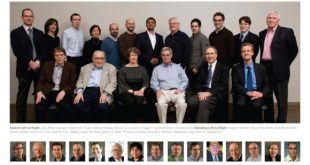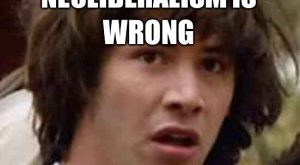The essence of scientific reasoning In deductive reasoning all knowledge obtainable is already latent in the postulates. Rigour is needed to prevent the successive inferences growing less and less accurate as we proceed. The conclusions are never more accurate than the data. In inductive reasoning we are performing part of the process by which new knowledge is created. The conclusions normally grow more and more accurate as more data are included. It should...
Read More »The greatest of them all
The greatest of them all [embedded content] Ingmar Bergman (1918-2007)
Read More »Adorno — the value of negativity
Adorno — the value of negativity [embedded content]
Read More »Adorno — une vie, une oeuvre
Adorno — une vie, une oeuvre [embedded content]
Read More »Teaching of economics — captured by a small and dangerous sect
Teaching of economics — captured by a small and dangerous sect The fallacy of composition basically consists of the false belief that the whole is nothing but the sum of its parts. In the society and in the economy this is arguably not the case. An adequate analysis of society and economy a fortiori can’t proceed by just adding up the acts and decisions of individuals. The whole is more than a sum of parts. This fact shows up when...
Read More »O Holy Night
[embedded content]
Read More »Economics without Keynesian ‘impurities’
Samuelson’s reconciliation of the micro-economic ideal type with involuntary unemployment was repudiated, along with Keynesian prescriptions, in favor of a view that there could be no involuntary unemployment , hence that government action was unnecessary. The result was a doctrinaire derivation of the laissez-faire conclusions that had been overturned by the formalist revolution; economics was now cleansed of Keynesian impurities that had been introduced in the interest of...
Read More »The skill-luck equation
[embedded content]
Read More »Inference to the best explanation
Inference to the best explanation [embedded content] In a time when scientific relativism is expanding, it is important to keep up the claim for not reducing science to a pure discursive level. We have to maintain the Enlightenment tradition in which the main task of science is studying the structure of reality. Science is made possible by the fact that there are structures that are durable and independent of our knowledge or beliefs about them. There...
Read More »Deborah Mayo on statistical significance testing
Deborah Mayo on statistical significance testing [embedded content] Although yours truly appreciate much of Mayo’s philosophical-statistical work, it is essential to remember that her qualified use of ‘severe testing’ actually is pretty far from the usual day to day practice of significance testing among applied social scientists today. If, however, statistics users stuck to Mayo’s ‘severe testing,’ there would be less reason to criticize the modern...
Read More » Lars P. Syll
Lars P. Syll



